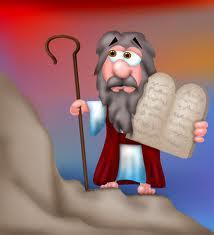 Having enjoyed great success with his first book, The Bible, God followed up (after a gap of centuries; writer’s block?) with The Koran.
Having enjoyed great success with his first book, The Bible, God followed up (after a gap of centuries; writer’s block?) with The Koran.
I am cognizant that Muslims hold the book sacred. But all ideas offered in the public square should be subject to critical examination. This does not mean disrespecting people holding the ideas; the issue instead is what others should think. Thus, after reading it, I present my objective review of The Koran.
Muslims consider it God’s (Allah’s) word, transmitted to the prophet Mohammad, over two decades. Mohammad preached it but wrote down little or nothing; followers compiled the book after his death. It’s not a sequel to The Bible; indeed, a very different book. Whereas The Bible was written mainly in the third person, The Koran is mostly in the first person, with God directly addressing the reader (or hearer).

We are often told the book’s poetic language (in Arabic) is beautiful. I can’t say; I read a translation by N.J. Dawood (Penguin edition) and if there was linguistic beauty it didn’t come through. But I will say the book could have used a good editor. It’s way overlong, completely disorganized, and numbingly repetitive.
The Koran sets forth a lot of rules, such as for inheritance and marriage; but unfortunately doesn’t deign to explain any rationales for them, so they come across as rather arbitrary. A widow must wait four months and ten days before making the scene again. Four months might seem reasonable, but why the ten days? God doesn’t tell us.
Curiously, while stating that some verses have precise meaning, the book does acknowledge opacity in others, whose explanation unbelievers will maliciously demand – “But no one knows its meaning except God.” (3:8) (It’s a mystery, you see; just get with the program.)

Religion of peace? I think not.
But mainly the author pounds away relentlessly on two basic themes: (1) how great he is; and especially (2) unbelievers are “evil-doers” who will be punished severely.

But the one thing he’s unforgiving about is unbelief. This he hammers on so compulsively – unbelievers will get “woeful punishment,” “grievous punishment,” etc. – that he can’t go very long without bringing it up, sometimes irrelevantly while talking about something else.


Joe Schmoe
I’m not a trained psychiatrist, but all of this smacks of a monumental insecurity complex. Why else the unrelenting assertions of his greatness and power, the “Fear God” refrain, and especially the fanatical concern over people’s belief? Why even create a book like this? Why would he care? If omniscient God knows he exists, and can smite anyone with a finger flick, what difference does it make whether Joe Schmoe believes it? If God is so great, we humans would be as vermin to him. Sane people don’t obsess over whether termites believe they exist and fear them.
Of course, The Koran was given through Mohammad as God’s mouthpiece. And if God’s obsession with disbelief makes no sense, it would have made perfect sense for Mohammad, who was literally fighting a war to put his new religion across among a skeptical people. In fact, The Koran sometimes acknowledges how hearers scoff at what Mohammad is saying; the answer (again) is that they will burn. Mohammad’s role also explains, of course, all the book’s exhortations to battle.
The Koran asserts, at various points, that the book itself is such a marvel that no human could have produced any of it. I would say it’s so uninspired and uninspiring that no god could have produced it.

* At least Joseph Smith, in the Book of Mormon, made up new stories.
